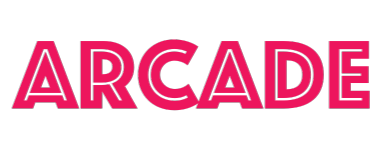Arcade MCP

Arcade MCP (Model Context Protocol) enables AI assistants and development tools to interact with your Arcade tools through a standardized protocol. Build, deploy, and integrate your MCP servers seamlessly across different AI platforms.
Quick Links
- Quickstart Guide - Get up and running in minutes
- Walkthrough - Learn by example
- API Reference - MCPApp API documentation
Features
- 🚀 FastAPI-like Interface - Simple, intuitive API with
MCPApp - 🔧 Tool Discovery - Automatic discovery of tools in your project
- 🔌 Multiple Transports - Support for stdio and HTTP/SSE
- 🤖 Multi-Client Support - Works with Claude, Cursor, VS Code, and more
- 📦 Package Integration - Load installed Arcade packages
- 🔐 Built-in Security - Environment-based configuration and secrets
- 🔄 Hot Reload - Development mode with automatic reloading
- 📊 Production Ready - Deploy with Docker, systemd, PM2, or cloud platforms
Getting Started
Installation
We recommend installing the arcade-mcp-server library for direct Python development:
Or install the arcade-mcp CLI package for additional tooling and streamlined development workflow:
Quick Start: Create a New Server (Recommended)
The fastest way to get started is with the arcade new command, which creates a complete MCP server project:
# Install the CLI
uv pip install arcade-mcp
# Create a new server project
arcade new my_server
# Navigate to the project
cd my_server
This generates a complete project with:
-
server.py - Main server file with MCPApp and example tools
-
pyproject.toml - Dependencies and project configuration
-
.env.example - Example
.envfile containing a secret required by one of the generated tools inserver.py
The generated server.py includes proper command-line argument handling:
#!/usr/bin/env python3
import sys
from typing import Annotated
from arcade_mcp_server import MCPApp
app = MCPApp(name="my_server", version="1.0.0")
@app.tool
def greet(name: Annotated[str, "Name to greet"]) -> str:
"""Greet someone by name."""
return f"Hello, {name}!"
if __name__ == "__main__":
transport = sys.argv[1] if len(sys.argv) > 1 else "http"
app.run(transport=transport, host="127.0.0.1", port=8000)
This approach gives you: - Complete Project Setup - Everything you need in one command
-
Best Practices - Proper dependency management with pyproject.toml
-
Example Code - Learn from working examples of common patterns
-
Production Ready - Structured for growth and deployment
Running Your Server
Run your server directly with Python:
# Run with HTTP transport (default)
uv run server.py
# Run with stdio transport (for Claude Desktop)
uv run server.py stdio
# Or use python directly
python server.py http
python server.py stdio
Your server will start and listen for connections. With HTTP transport, you can access the API docs at http://127.0.0.1:8000/docs.
Configure MCP Clients
Once your server is running, connect it to your favorite AI assistant:
# Configure Claude Desktop (configures for stdio)
arcade configure claude --from-local
# Configure Cursor (configures for http streamable)
arcade configure cursor --from-local
# Configure VS Code (configures for http streamable)
arcade configure vscode --from-local
Client Integration
Connect your MCP server with AI assistants and development tools:
- Claude Desktop - Native MCP support in Claude
- Cursor IDE - Enhanced AI coding with MCP tools
- VS Code - Integrate with Visual Studio Code
- MCP Inspector - Debug and test your tools
Learn More
- Walkthrough - Comprehensive examples and tutorials
- API Reference - Detailed API documentation
- Transport Modes - stdio and HTTP transport details
Community
License
Arcade MCP server is open source software licensed under the MIT license.